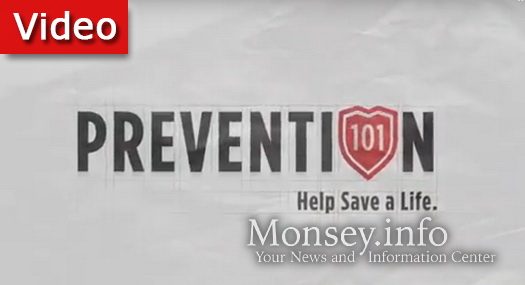
Prevention101: What Should I Do If My Child Is Using Drugs?
If you suspect a teenager is abusing drugs or alcohol, do not panic and do not immediately speak to the teenager about the situation. Speaking to the teenager before you have a plan usually backfires because the conversation quickly disintegrates into a confrontation, which accomplishes nothing.
The first thing you need to do is think of people in your life who can be helpful and think of professionals to contact. Determine if there is another adult—an uncle, older brother, or favorite cousin—with whom the child has a good relationship and may have some positive influence. Is there a member of the clergy that can be helpful? Does the child have a pediatrician who has been a regular part of his or her care? Think of people in your life who can connect with the child you are concerned about. Enlist one or more of these people to spend time with the child, since he or she might open up to this person when not being open to a parent.
After you have created this list, go through your cabinets and check all the different medications that can be addictive, such as medications for pain or anxiety like oxycodone, Xanax or Valium. Ensure these medications are stored properly so the child will not have access to them. If those medicines are no longer needed in the house, find out the proper way to dispose of them. There are many pharmacies where you can drop off prescriptions that are no longer needed.
It is also important to consider if there are other homes where your teenager could be getting access to powerful medications. For example, does the child regularly visit his or her grandparent who has a variety of pain medications? Speak with the grandparent or other individual about storing or disposing of their medications correctly.
After these precautions have been taken, it is time to locate Narcotics Anonymous (NA) or even Alcoholics Anonymous (AA) meetings. You can also search for Al-Anon meetings, which are for family members of addicts. Any of these programs can provide a lot of information. There are many meetings available at different locations and at different times of the day. It is also extremely important to contact a professional who specializes in addiction. This professional can guide you through determining how treatment should be pursued, whether it is in-patient rehab or outpatient treatment. With outpatient treatment, the child might still be able to go to school while also going to individual and group therapy three to five times a week and being continuously monitored for drug use.
The detoxification process, often referred to as simply “detox,” is also something that needs to be considered. Detox occurs as the body adjusts to not using drugs. Detoxing is not just a matter of willpower, it is a matter of physical health. If a person stops using drugs suddenly, it can be life-threatening because the nervous system is used to certain substances and will automatically crave them. Because of the drug use, some body systems may have stopped working, and doctors need to regulate how to get the body back to normal functioning without causing more damage in the process. A medical professional should address the best route for each individual’s detox process.
After researching the above resources, it is time to have a conversation with the child, but do not approach the conversation as if you are requesting information. Most likely, if you straight out ask, “Are you using drugs?”, the answer will be, “No.” Instead, initiate a conversation about their friends, what their friends are up to, and what’s going on in their social circles. A child is much more likely to tell you a friend is using drugs and how that friend’s parents reacted. This can open up a conversation about drugs.
Regardless of how the conversation goes—if it goes anywhere at all—teenage drug use is something that needs professional attention. Do not panic. Get the proper help. Interventions and treatments do work, and the child can, with the proper intervention and treatment, build a beautiful and successful life.
(Article is based on interview with Dr. Miriam Gross for Operation Survival’s Prevention101 series. This article is not a substitute for medical care. If you have any questions or concerns, please talk with a healthcare professional)











